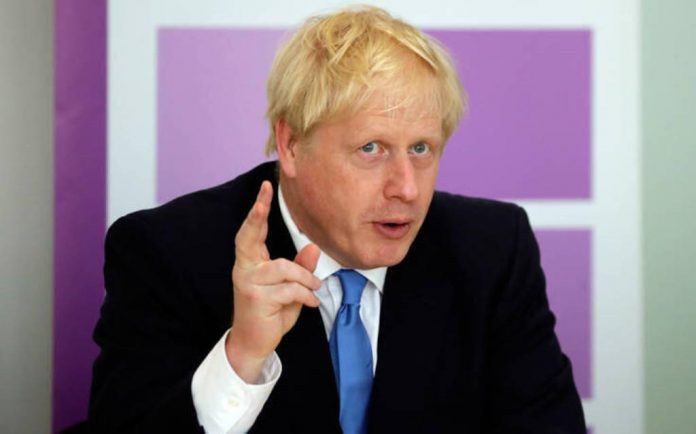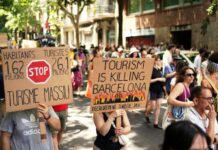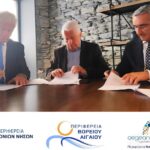The government is investigating the use of “Covid status certificates” to help allow society to reopen, Boris Johnson has announced, as he set out a cautious, four-step unlocking plan for England that will see some sectors remain shuttered until June.
“The end really is in sight; and a wretched year will give way to a spring and a summer that will be very different and incomparably better than the picture we see around us today,” the prime minister told MPs on Monday as he announced the unlocking plan.
Ministers have repeatedly denied that they would consider the domestic use of so-called vaccine passports, fearing they pose risks of discrimination, as some groups are unable to receive the coronavirus jab.
But as part of the government’s roadmap out of England’s national lockdown, a review will be carried out to assess whether certificates could allow restrictions to be lifted more safely. It is expected to report before June.
In a nod to potential objections, Johnson said the review would be,“mindful of the many concerns surrounding exclusion, discrimination and privacy”.
The keenly awaited roadmap, which the government insists will be dependent on “data, not dates”, lays out a four-step reopening process that will see the “stay at home” order remain in place for a further five weeks.
With the prime minister keen to avoid having to order a fresh lockdown, he has opted for a gradual lifting of restrictions across England, which is likely to irk some Conservative MPs, who will be given a vote on the plan next month.
• Schools will reopen to all pupils on 8 March. The only other change at that point will be that two people from different households will be able to meet outside socially, instead of just for exercise.
• From 29 March, in the second part of step one, the “stay at home” order will lift so people can meet family members in a park or garden, and outdoor sports facilities will be allowed to reopen.
• In step two, from 12 April, hairdressers and non-essential shops will be allowed to reopen, as well as self-catering accommodation, public buildings such as libraries and museums, and outdoor hospitality such as pub gardens.
• From 17 May, in step three, most rules on outdoor social contact will be lifted, aside from a limit of 30 on the size of gatherings. Pubs and restaurants will be able to serve customers indoors.
• In step four, from 21 June, all limits on socialising should be lifted and the government hopes that businesses that were unable to reopen in summer 2020, such as nightclubs, will be able to reopen their doors.
The five-week gap between the phases is intended to allow four weeks for data to emerge about the impact of the changes on the disease and a week’s notice for the next stage of easing to be introduced.
“The chief medical officer is clear that moving any faster would mean acting before we know the impact of each step, which would increase the risk of us having to reverse course and reimpose restrictions. I won’t take that risk,” the prime minister told the House of Commons.














